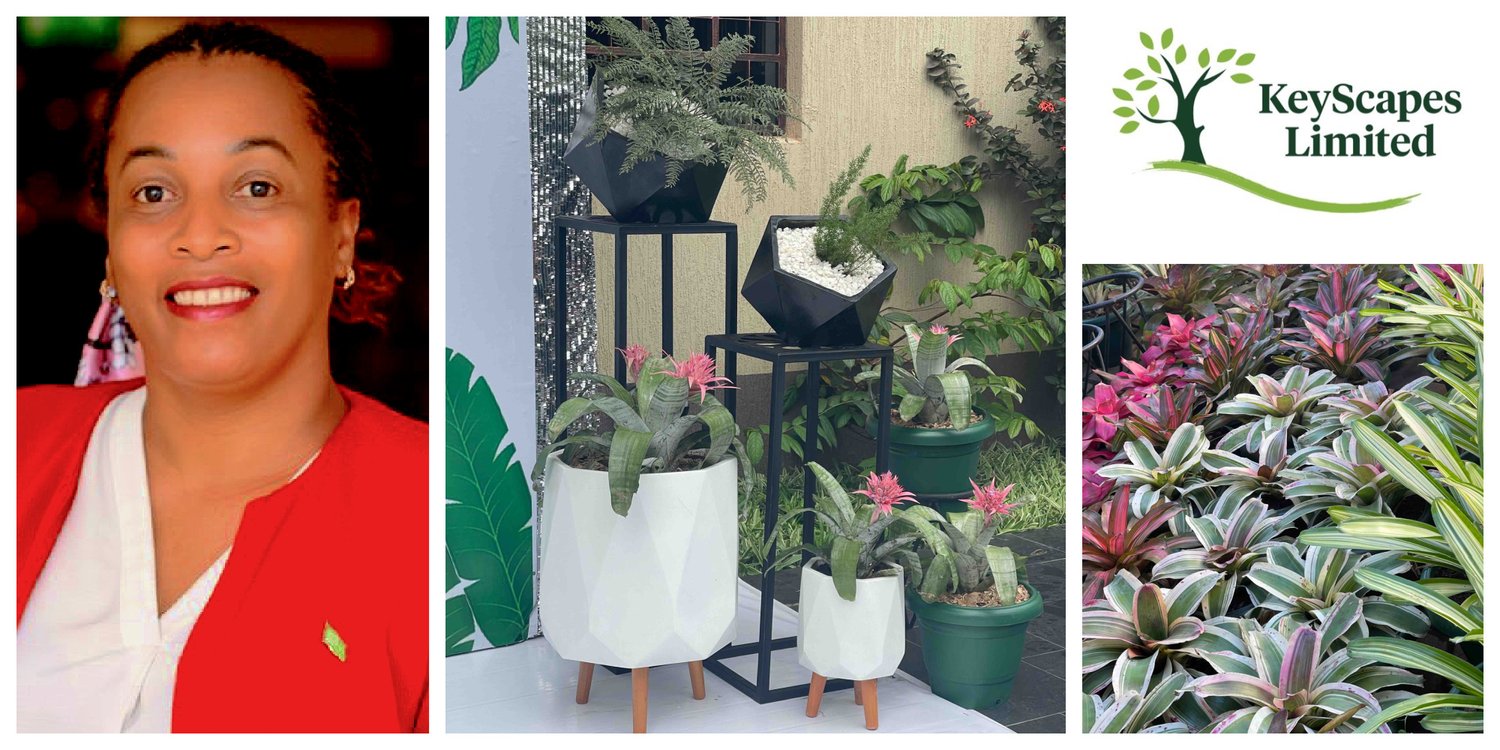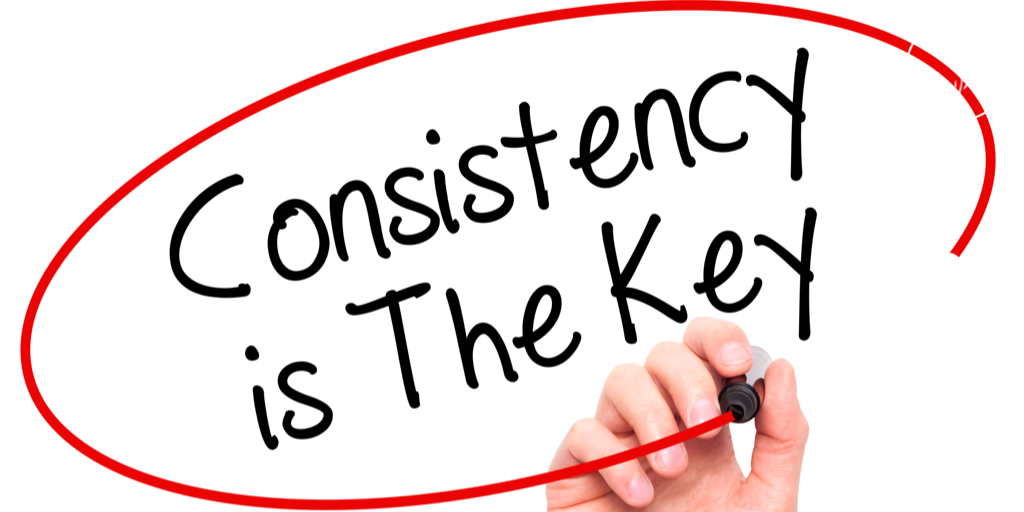Benefits of Breeder Associations
Allan Sinclair, Managing Director of Vleissentraal Bloemfontein discusses the importance of breeder associations and gives us some insight into the purpose they serve in agriculture.
Allan Sinclair, Managing Director of Vleissentraal Bloemfontein discusses the importance of breeder associations and gives us some insight into the purpose they serve in agriculture.
Why is it important to do daily observations on your farm and how can a daily observation card assist? Afrivet’s Learnership Manager, Siyanda Mabaso offers advice in our latest episode of African Farming Digital.
Technology can be used to progress and increase productivity, among many other things, on a farm. Praveen Dwarika, Managing Director of Afgri’s Lemang Agricultural Services discusses integrating technology into the agricultural sector.
We take a look back at the In Conversation with FNB Agric event in the Kirkwood area, which focused on citrus producers. We spoke to the likes of Theo Boshoff, CEO of Agbiz, Paul Makhube Senior Agricultural Economist: FNB Agriculture, Lennox Plaatjies, the Director of Bambisane Farming and PALS Board Member and Hannes de Waal, CEO of Sundays River Citrus Company & Chairman: CGA.

What inspired you to start your company?
I realized I could have more than what I already had and chose to go for it and exhale.
Why should anyone use your service or product?
KeyScapes creates green spaces in residences and mainly corporate offices which greatly improves the human mental health and improves productivity levels which translates into a high return on investment.
Tell us a little about your team
Our management team comprises of three leaders, one administrator, thirteen full time staff and on-call contract staff. The leadership team has one in charge of the operations, finance and the third marketing and PR, together the leadership team has over 60 years of cross industry experience across different segments.
Share a little about your entrepreneurial journey. And do you come from an entrepreneurial background?
I do come from an entrepreneurial background. At the start of my career out of school in 1998 I opted to join the banking industry mainly because I wanted to wear heels, yes, heels, look posh and talk a lot of banking. In 2011, I went for an attachment with Barclays Bank Kenya, now ABSA. I realized almost all my colleagues then had side hustles that brought in a good side income on top of the salary. This side hustle business needed to be given a shot, which I did, only that it got to my head when I realized I could not be here and there. At least one thing suffers, so I quit formal employment and started the journey of self-employment in 2015. One and half years into this new world of self-employment, I hit rock bottom, actually I went past rock bottom and that’s a story for another day. But I picked myself up gradually and sometime in 2017, with mentorship from Vital Voices, I changed the business strategy, introduced new product lines, and I have only looked forward since.

Lioness Weekender spoke to Cleo Johnson about her passion for the hospitality marketing sector and her personal entrepreneurial journey, which has taken her to becoming one of the hotly tipped women entrepreneur success stories of the future.
What does your company do?
Nuecleo is a hospitality marketing consultancy in South Africa. We provide a complete strategic, creative, and marketing service for hospitality and tourism businesses that lack marketing infrastructure. We aim to improve the reputation and increase the sales and revenue of our client’s businesses in 90 days using bespoke digital tactics. Marketing Maven is a business consultancy that helps ideation and early-stage entrepreneurs build, structure, and grow their businesses through my award-winning methodologies.
What inspired you to start your company?
Nuecleo was a by-chance situation or kismet as some may see it. I was in the process of moving hotels within the group I was employed with, but the GM of the new hotel I was going to open decided a week before I was supposed to move to Cape Town that he was going to change certain arrangements which led me to decline the offer altogether and resign. I had no plan other than I deserved a break and decided to plan an “eat, pray, love” journey to India to do my Siva at an ashram. As luck would have it, as I began my preparations, I decided I would start a blog and monetize it. Through research, it said I needed to register a business to monetize my blog, fast-forward three weeks, I had met my first client by chance at a Starbucks as I was registering my freelance services online. The rest, they would say, is history. Five and a half years later, I am still in business but have not left for India just yet (LOL).
As the years progressed, I decided to step out from behind my company logo and work on my brand – Marketing Maven was born. It has been two years in the making and will launch its services officially in Q4 of 2022. I had received so many requests during the pandemic from small business owners wanting to work with me so that they could either start or grow their businesses. Throughout that period I offered free small business mentorship along with online training. It has also opened me up to work with corporates like Yoco, Xena by Retail Capital and ABSA to deliver talks and training to SMEs. Marketing Maven has allowed me to venture into other industries without clashing with Nuecleo’s service offering.
Why should anyone use your service or product?
My background is hospitality – it’s what I studied and the industry I worked in for six years. I have always said that hospitality marketing is quite different from other industries. This intimate knowledge sets me apart from other agencies that don’t understand the industry well and allows me to go deeper into solving operational problems and creating experiences online and offline for their guests.
The small business mentorship offered through Marketing Maven uses my award-winning methodologies. My clients can attest that after just one session they already feel more confident and have clarity about their businesses and what they need to do. My business services leverage my experience and offer a unique perspective and creative solutions. I lend this experience to start-ups as interim CEO or HOD to help their businesses and prepare them for their growth phase.
Tell us a little about your team
Nuecleo has a core team of six, including myself and one intern, who all work remotely. My team consists of my website developer, Julian, who is based in Cape Town and attends any meetings that need to happen face to face on my behalf in that area. We have our graphic designer, Dimpho, our SEO manager, Louis, and Mahlodi, who handles PR for our clients.
Share a little about your entrepreneurial journey. And do you come from an entrepreneurial background?
In February 2023, I will have been an entrepreneur for six years. I have started six businesses and sold one. They have all been in different industries and learned key lessons from them all. I don’t come from an Entrepreneurial background per se, but my dad has always been one for coming up with big ideas – I guess that caught on. My dad also taught me that money should never be an obstacle which I feel is what has gotten me ahead in life. I remember when I started Nuecleo, the idea was to have a social media agency, my name on a building, and I quickly realized that is not what I wanted. I think on this journey we often get influenced by other business people and assume that based on their successes we should imitate them and acquire what they have to be successful – you learn that that is far from the truth. I remember when I still worked for a company and how much I hated being in an office, so for the last five and a half years, my team and I have enjoyed working from home or wherever we want to. On a deeper level, entrepreneurship allowed me to unpack what success means and looks like to me, deal with my imposter syndrome, cultivate healthy habits and spaces that allow my mental health to thrive, learn to rest without feeling guilty, get out of my comfort zone and focus on producing good work that isn’t influenced by awards or media mentions. These last two and a half years were the most difficult I have ever encountered because of the pandemic, but I believe coming out of that season, my character was stripped and refined for what I will be building next. Entrepreneurship is humbling and no one is immune to debt, bad clients, dodgy business partners and invoices being paid late. It is part of the journey, and you learn to roll with the punches. I wouldn’t trade this experience for anything, but it’s not for the faint of heart. You have to be brave, believe in yourself and your vision and be prepared to take countless risks because the world is going to push back but your why will ground you.
What are your future plans and aspirations for your company?
For Nuecleo, I am in the process of launching the Tourism Network, an online platform that teaches and empowers small business owners with digital marketing skills they can implement themselves if they can’t afford an agency. We will also offer subsidized marketing services based on a subscription model too. This project aims to bridge the gap that small businesses face when trying to compete with larger properties or tourism-related businesses that have large budgets and an online presence. This is in the hopes that small businesses in the industry can get a piece of the pie and take the guesswork out of creating an online presence for hotels, B&Bs, tour operators and restaurants.
I am also looking to develop free cloud software that smaller hospitality businesses can use across the continent. Between booking fees and outdated forms on websites, independent hotels and B&Bs are struggling to compete. Whilst the hospitality and tourism industry is in recovery and opening up, I look forward to opening satellite offices in key international cities where my clients are based. This was a plan for 2020 and unfortunately was curtailed due to the pandemic. I miss travelling and look forward to getting back on a plane again.
From a Marketing Maven perspective, I said my 30s were about legacy and having the opportunity to work with a lot of start-ups, a large part of my strategy is equity instead of exorbitant retainer fees. This will be my focus for the next 5-10 years.
I still have plans to one day open a dignity centre for the homeless and launch a community project that supports and helps girls and young women navigate through those uncertain years. I currently do this in my own time, on a small scale, through my initiatives Adopt-a-block and Powher Circle.
What gives you the most satisfaction being an entrepreneur?
Seeing my clients happy. Their success is my success. I also get pretty excited when I find innovative solutions or business ventures that I can jump on. I have a varied portfolio of clients and businesses that I work with and in and I love the experience I gain. I do not think I would ever get bored, and entrepreneurship has afforded me that opportunity to constantly grow.
What’s the biggest piece of advice you can give to other women looking to start-up?
Do not be in a rush, you won’t have it all figured out in the beginning. By just starting, you will begin to answer all those questions that were holding you back. Always have a niche! There are similar businesses out there but solving a problem for a specific group of people makes you stand out. Focus on customer service first, it is a lot cheaper to maintain the clients you have than to find new ones. Lastly, don’t say yes to every piece of business for the sake of money. Often it is at the sacrifice of your peace and values – clients can be toxic too!
To learn more about Cleo Johnson’s businesses and service offerings, send her an email to: cleo@nuecleo.co.za or visit the NueCleo website: http://www.nuecleo.co.za or social media pages:

by Tsitsi Mutendi
Last week, we met our trader turned enterprise builder, Ms. Simbajena. Ms. Simbajena is one of the powerhouses in the SME and MME sector. Ms. Simbajena is a Trader who managed to open a store, which then became a chain of stores and diversified into manufacturing. According to research done by the UN and World Bank, Women play a crucial role in trade in Africa and will be essential to Africa’s success in exploiting its trade potential. Daily, millions of women in Africa are engaged in one form of trade or another, either within their countries or across national borders. They buy and sell everything, from agricultural produce to manufactured products. It is mostly women who conduct cross-border trade, delivering goods and services, reports the World Bank. They also run the majority of agricultural small landholdings. Indeed, women traders’ contribution to national economies has become essential in boosting trade in Africa. It is well known that most women in Africa start a business out of necessity, and that necessity is to feed their family. Women Business Owners are the majority of many Family Business Owners. The biggest obstacle is that they do not see their business as a business that can become bigger than just feeding their family, even though they contribute to the Ecosystem of many economies in a colossal way.
As her business grew and profits grew, Ms. Simbajena migrated her business from selling fresh produce at the street corner and is now buying and selling clothes. Her chain of stores are vibrant boutiques, and she prides herself on how far she has come. Her clientele is upmarket, and she caters to their whims and needs. She has also started sourcing uniforms for big companies and is considering opening a small manufacturing place.
Most of her ideas she shares with her friends but she was scared they may also steal her ideas, so she had no formal planning process but just ideas she would jot down in her notebook. As she grows her business she confides in some friends, especially those in business. However, the ideas she implements are just implemented in a haphazard way. Although her business is bigger than just one small shop with a few employees she continues to operate it as such. Once or twice, she engages consultants but mostly because she has seen others doing this.
As time goes on, she feels a bit overwhelmed with her thoughts and is unsure about how to execute them. She also becomes overwhelmed by the number of areas of her business she has to think about and work on. She is very slow and skeptical about hiring management for her business. So, she handles all the management functions herself. This leads to her being unable to go on holiday or have days off from work. This slowly erodes her peace of mind and causes her to suffer from stress-related health problems.
This is a dilemma faced by many Family Businesses, especially those that are managed by the founder-owner. The business grows progressively and may initially be managed well in its infancy stage. But after a certain level, the business needs more strategic thinking and objective ideation. This means that the business needs people who can drive it forward to a bigger vision. The founder may reach their goal of a business that can grow and sustain their family wealth and stay stuck in that vision instead of breaking past their own limitations. Even in cases where the founder has a grander vision, they may not be clear on how to execute it. To grow their business bigger than their perceived limitations, the founder must allow others into their thought process. And the safest way to do so is by putting together a board of advisors or a formal board of directors. These groupings must have an official mandate. The mandate should be in line with the founders’ goals. In this space, the groupings can be bound by Non-Disclosure Agreements and Ethics. These will protect the founder from their ideas and thought being prematurely released onto the market or being “stolen.” And these groupings, when used effectively, can create a powerful management and advisory structure that can take the company to a whole new level of growth.
When putting together your advisory board or board of directors, consider how much you can remunerate the individuals for their time and knowledge and expertise.
How many members do you need on your board?
Which board is more appropriate for your needs?
What legal structures can protect your Intellectual property in these meetings?
What skill sets do you need on your board?
How often should you meet, and what are the objectives?
Any time there is growth, there is resistance. But for a Family Business to grow, there are essential governance and structure issues that have to be put in place to allow the success of the growth.
Tsitsi Mutendi is a Succession and Estate Planning Expert specializing in SME, MME, and Family Business Services. She writes in her Personal and Professional Capacity. Comments and views: tsitsi@tsitsimutendi.com or hello@nhakalegacy.com

by Filipa Carreira
Our expectations of the workplace and our romantic relationships have become ever more complex. Psychotherapist Esther Perel calls this the shift towards an Identity Economy, where we look for our purpose and life’s meaning in our work and or our romantic partner, in other words, our partner and our work determine who we think we are, they are intrinsic to our perceived personhood. We are more virtually connected but physically isolated resulting in a convergence of roles that only adds pressure to our “real life” relationships. We expect from our partner what once a whole village provided and we expect for our career what we use to look for in religion and community, our sense of self. A few generations ago unless you were an artist or an artisan you didn’t pursue your passion through your work. You just did the thing, you got paid and you went home and if you had time, you would pursue the activities and relationships that gave your life purpose, now we expect our work to have meaning and impact. After all, we now view work as an extension of our intellectual selves, an expression of our being.
A couple of generations ago people got a job and that was it for the rest of their lives unless, of course, the factory closed, there was no other reason to change jobs. As we moved from a production-based economy to a service-based one and the workforce became more mobile, people started switching jobs when they felt underappreciated and found better-paying alternatives. Our commitment to the workplace began to wither, like in our personal relationships now we leave not because we are unhappy but because we believe we could be happier somewhere else. So, what makes people happy in the workplace? Much like in our personal lives, what makes us happy at the office is the quality of our relationships! According to the latest Glassdoor survey, 65% of millennials are likely to care more about work culture than salary. Now you might be thinking “this snowflake generation is a bunch of whining spoilt brats!” but it turns out about 50% of over 45s feel the same way. Is it really that surprising that people demand to be treated with respect and dignity in the place where they spend most of their waking hours? It is becoming clear that employees are no longer exclusively driven by pay or work-life balance, successful leaders must focus on bolstering a healthy and positive company culture to be able to hire and retain high-quality talent.
Today, no amount of money, purpose or free food will make up for a toxic work environment. Relationships are harder to measure, harder to sustain, and harder to repair, successful leadership hinges on the ability to make colleagues and employees feel appreciated and valued. Relational Intelligence, how we interact with other people determines our ability to connect, what and who we commit to, and how we compete, collaborate, and create. Going a step further than Emotional Intelligence which reads more like an agreeability checklist, Relational Intelligence is dynamic and takes into account the various continuous feedback loops in our environment allowing for better communication and conflict management focusing on complementarity.
As Relational Intelligence becomes the crux of a healthy and positive work environment and strong company culture, we will have to upgrade our relational skills to polish our conflict mitigation and resolution abilities. Conflict manifests in different forms, the ones we are quicker to identify are the heated argument, table slamming, red faces and yelling, but if the latest wave of quiet quitting has taught us anything that power can come from the bottom up and silent resistance is infectious and effective. Much like when the nagging girlfriend suddenly stops being “so demanding” and takes up working out for no apparent reason Relationship Intelligence speaks to our ability to pick up on the nuances and attitude shifts before these become seemingly intractable pain points. In the face of antagonism, it is much easier to focus on the superficial symptoms and finger-pointing, it requires empathy, kindness, and courage to dig beneath the surface and root out the true causes of conflict, but it is always a worthwhile endeavour. Highly relational intelligent individuals are prepared to engage in this connection, disconnection, and reconnection cycle, making their partners, colleagues, and employees feel respected, valued, and appreciated. Forget “Mean Girls” trust falls, this is how relationships are tested, tried, and strengthened. When rapture is adequately dealt with, we come out to the other side knowing what we can expect from one another we know how far we are willing to go for each other and the relationship. Essentially, we know they have our back allowing us to direct our time and energy outward at other forward-facing challenges fostering growth, creativity, and productivity.
Company culture is not pizza Friday and happy hours, it is how we feel about coming to work and our relationships with the people around us, it is the glue that binds your business.

by Brigette Mashile
This should be easy for most people, because we all have something we do in the same way every day. We are trained to do some ‘normal’ thing from a certain age all our lives. We all have been taught and trained to wake up, wash our bodies, eat, and stay awake for at least 12 hours a day. Well, I do hope we all have had this. From this we are taught about school, where more discipline is instilled; exams, church, Christmas etc. We all learn some type of consistency through life, so much that it becomes second nature to us.
And yet, I struggle. I wake up each day, I brush my teeth first, then have coffee, and then decide what to do that day. These three are the same each day of my life, without fail nor pain I show up for them. They are second nature, they are not debatable, you cannot convince me otherwise. Now tell me why I cannot fit in a daily 15 minutes on the treadmill in there? Tell me why I cannot convert this energy to the social media strategy outlined for me. Why is it that I can drink coffee every 365 day of the year but a work-out is harder?
I am aware of the results my becoming consistent in working out or posting regularly on social media will be. I can visualize them, but on day 4 I am bored. Simply not excited nor inspired to continue. It is as though my brain can take three takes of the same behaviour, we need to change it at the fourth try. Repetitive means mundane to me, every day at the same time sounds boring to me. My brain needs a challenge, anything that is easy and familiar doesn’t push me. This sounds like I do not do easy and peaceful processes.
So, what I end up doing is posting at different times on social media, also posting random things that don’t really tell a story. This chaos doesn’t bother me, but I know it will achieve more if I organized it better. Hey, the Instagram account is doing better, maybe I will get the TikTok there eventually. On the gym, I do it when I remember or when the back ache pushes me to the elliptical machine. These times are so random, I will never see a difference over time. So much so I have given up on losing weight and I now concentrate on growing strength.
This consistency issue stretches into how I eat, how I blog, how I make orders. I eat a different meal every day of the year, I submit blogs when Natalie reminds me, and I make dresses according to how I feel that day. Look, this could be a creative personality issue, or I just have a lot to do in a day. Or maybe there is a routine, one which I haven’t picked up. I am still here; the business is still here, and I haven’t gained weight in 5 years! There is something I am doing right? NO?
Consistency requires planning, goals, strategy and most important discipline. Athletes will tell you this is how they win world cups; even top fashion designers will tell you this is how they run their businesses. Most processes and policies in organizations are there to keep the business consistent by doing the same things, which have been proven to work. Over time your repetitive, routine and familiar performances will result in your goals. Good luck to you becoming more consistent.

When I started Lumo Naturals, I was at the salon every day; the first to arrive and the last to leave. I worked late nights almost every other night; planning, plotting and preparing to solve an existing problem or an imagined one. Suffice it to say, I was always exhausted, which affected my ability to think clearly about the next quarter or plan for the next year.
Running a successful startup is about leading a great team to execute. The founder’s ability to delegate and manage changes will therefore be tested. Like the saying goes, “Rome wasn’t built overnight” and so, great founders are not born, they are made. They learn with time and grow into the role required to steer their company’s affairs right. What are the qualities you will need to become a great founder? Let’s look at some of them;
They are aware of their weaknesses; One of the best ways to quickly build a great team is to be aware of what you don’t have as a skill and find someone who fits that role, while you focus on your strength and build around it. This works perfectly when you have co-founders that complement each other, and it FastTracks the company’s impact.
They inspire people; Great founders are doers. They think on their feet and work swiftly. With consistency and discipline that is very inspiring to the average person. They push everyone around them to do more, and always strive for better. This inspires those they lead to easily follow and get the work done.
They manage their ego; Everyone has an ego. As a founder, it is very easy to get carried away by the newfound fame and/or success of your growing startup. It is however very important to stay grounded and focus on getting the job done, by killing your ego and looking beyond what you think is your self-worth. In other words, if your company fails or not, don’t step on a pedestal you are bound to fall from.
They manage diversity; We live in a multicultural world and dynamic times. As a founder, you need to be open to hiring competent people by being ethnic blind. You must be willing to unlearn certain biases and accept people’s choice to live their lives as they choose to, as long as it doesn’t affect their work ethic and contribution to the team.
They show empathy; There is a very wrong notion that comes with being the boss. Most people have confused it to mean being cold and difficult to a point that makes people feel unsafe. While you shouldn’t compromise on your values, a great founder also knows how to be firm without being demeaning and overbearing.
They command respect; Great founders know that respect is reciprocal, and they command it by actions and not words. They create a safety net for the people around them, to know what the company culture is, and adhere to it.
They are ready to learn; I am sure you have heard of the saying that great leaders are great readers. This applies here. Great founders are humble enough to ask for help when they need it, and they know that it is okay not to know it all.
They are ready to listen; A major trait of great leaders is the ability to listen. In the case of a great founder, they listen not just to respond, but also to understand. Knowing fully well that the company’s success doesn’t just rely on them, but also how well the entire team works. They are good with relationships; Relationships are at the heart of every great organization, and startups are no different. The ability to study human behavior, genuinely care for people, and connect with different people at a certain level, is a special skill every founder needs to learn.
They make tough decisions; Founders are very decisive and firm. When it’s time to make the big decisions and wear the heavy crown of failure, they don’t throw their team members under the bus. They do what is necessary and play their part to manage tough situations.
They are flexible are how to get to the finish line; Great founders understand tides and waves. They are not rigid and unyielding when the reality is different from what they envisioned. They are flexible and open to changes, as long as the solution gets to the person who needs it.
They prove their capability; We have established earlier that great founders are doers, but by doing so, they also prove what they are capable of. When they say something, they make sure to deliver on that promise and communicate when it’s taking longer or why it cannot be done at that agreed time.
They don’t act on sentiments; Great founders know that humans are as flawed as they come. This is why they form lasting alliances and relationships, and the interest of the team and business always takes precedence over their own emotions. They can manage their anger and be fair regardless of how they feel about a person or group of people.
They identify seasons; Great founders know when to wait, and when to pounce. They take calculated risks and weigh their options. They know when it’s the season of building and hard work and they are not afraid to stand in the rain, so the harvest time can be big enough for all to testify.
They have foresight; Great founders are not only visionary, but they also have the foresight to observe market trends and build their company towards fitting into their consumers’ needs. They know when certain people fit the role they want them to play, and they are unbiased about cutting off those who are bad for their company’s ethos.
They manage expectations; When building great teams, it is possible that a founder can unintentionally hype the big picture to the point that it paints a picture of Eldorado in the mind of its employees.
A great founder recognizes when this error has been made, and they are straightforward and honest about the true nature of the business at every point. They can read body language and set the record right before it becomes too late to salvage the situation.
They think different; Being an entrepreneur requires you to think outside the box and solutions. Most great founders tend to see the gaps first and become obsessed over creating the answers, beyond the challenges.
Do you recognize some of these qualities as yours or that of someone you know? Don’t be alarmed if you find that you fall short based on the items on this list. Remember that habits are cultivated overtime and your ability to read situations and work intuitively are just as important.